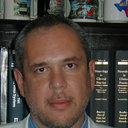Antiparasitic treatment of neurocysticercosis - The effect of cyst destruction in seizure evolution.
Keywords
Abstract
Antiparasitic agents against Taenia solium cysticercosis have been in use since 1979, although its use has been questioned on the basis that cysts would die naturally and thus treatment-induced inflammation is unnecessary. In addition, isolated reports have also questioned whether neurocysticercosis (NCC) is a cause of epilepsy. After more than three and a half decades, a large body of evidence is available. Little if any doubt exists about NCC as a cause of seizures - NCC is consistently associated with seizures when appropriate groups are compared, and in a large subset of cases, seizure semiology correlates with the anatomical location of lesions. Cyst degeneration and the subsequent inflammatory reaction increase seizure expression, although patients with non-inflamed cysts may have seizures, as do patients with long-standing, not inflamed calcified scars. Assessment of the evidence on cysticidal efficacy, safety, and the impact of cyst destruction in decreasing seizures leads to the conclusion that the benefits of antiparasitic treatment in parenchymal brain cysticercosis clearly outweigh the risks, and have provided substantive evidence of the role of NCC as a cause of seizures and epilepsy. Antiparasitic therapy should be considered a primary option in the management of patients with live or degenerating brain NCC cysts. This article is part of a Special Issue entitled "Neurocysticercosis and Epilepsy".


